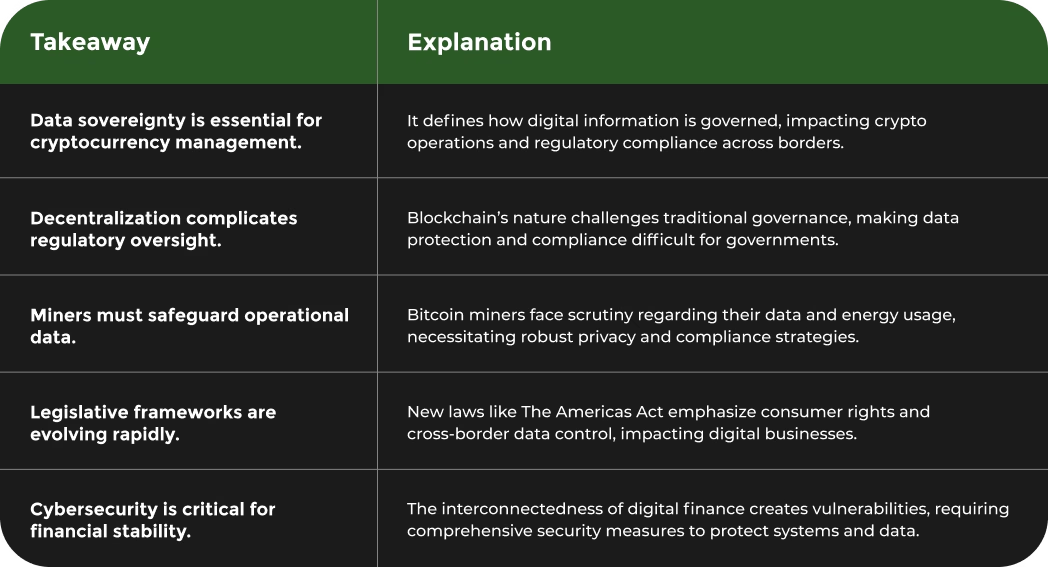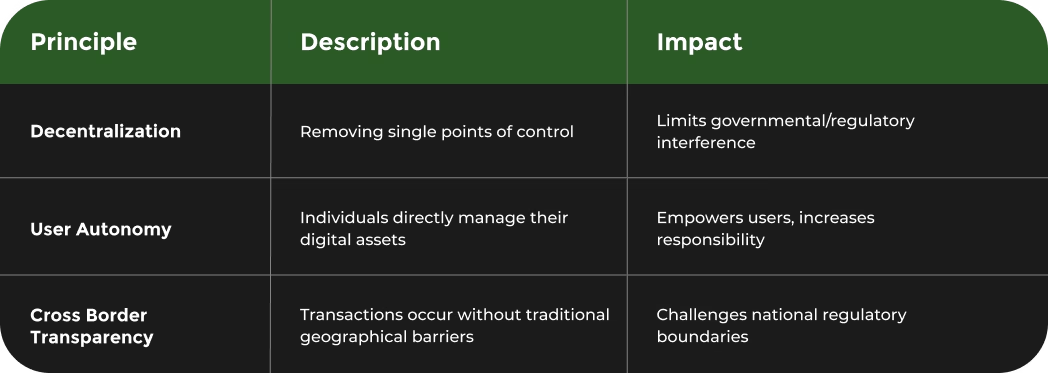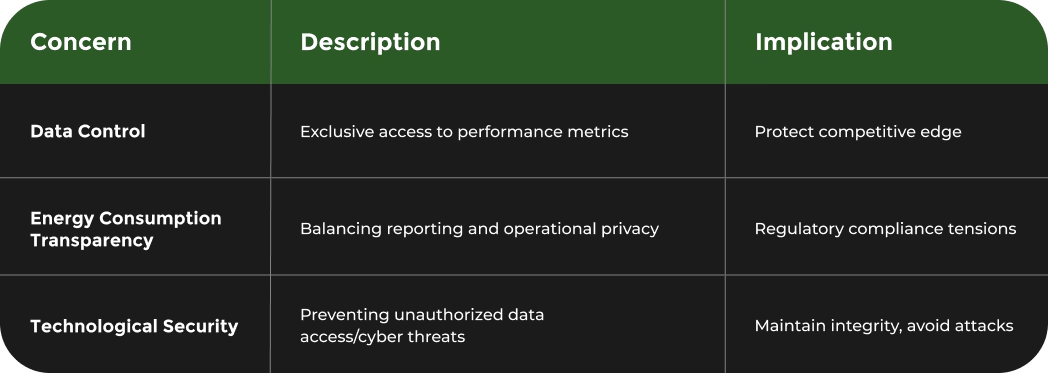
Data sovereignty is shaking up the future of Bitcoin, mining, and digital finance. Seven U.S. states now grant consumers the right to access, correct, and delete their personal data, which marks a massive shift in who holds power over digital assets. Most people still think blockchains guarantee privacy no matter what. But new laws and global tensions are forcing miners and crypto platforms to confront a reality where control can change overnight. The question is not just about technology. It is about who owns your information and what happens if that control shifts tomorrow.


Data sovereignty represents a critical concept in the cryptocurrency ecosystem that fundamentally challenges traditional notions of digital governance and control. At its core, data sovereignty refers to the legal right and regulatory framework determining how digital information can be collected, processed, stored, and transferred across geographical boundaries. In the context of cryptocurrency and blockchain technologies, this concept takes on profound significance.
Cryptocurrency networks inherently challenge traditional data sovereignty models through their decentralized architecture. Unlike centralized financial systems, blockchain technologies distribute data across multiple nodes, creating a complex landscape for regulatory oversight. Stanford Journal of Blockchain Law & Policy highlights that this decentralized nature presents significant challenges for national governments attempting to enforce data protection regulations.

Blockchain technologies introduce complex dynamics for data sovereignty. National Center for Biotechnology Information research reveals that self-sovereign identity solutions in blockchain create intricate governance challenges. These systems aim to provide individuals unprecedented control over personal data, yet simultaneously introduce technological complexities that challenge existing regulatory frameworks.
The intersection of cryptocurrency and data sovereignty becomes particularly nuanced when considering international regulatory environments. Different jurisdictions maintain varying perspectives on digital asset management, creating a fragmented global landscape. Some nations view cryptocurrencies as potential threats to monetary sovereignty, while others recognize them as innovative financial technologies.
Cryptocurrency networks must navigate these complex regulatory terrains while maintaining their core principles of decentralization and user empowerment. The self-executing nature of smart contracts and immutable transaction records further complicate traditional data governance models, requiring innovative approaches to regulatory compliance.
Moreover, the International Journal of Information Security emphasizes that emerging financial technologies like decentralized finance (DeFi) and central bank digital currencies (CBDCs) are disrupting established financial regulatory frameworks. These innovations demand enhanced cybersecurity regulations that can protect financial systems while respecting the fundamental principles of data sovereignty.
Ultimately, data sovereignty in cryptocurrency represents a dynamic, evolving concept. It challenges existing paradigms of digital governance, requiring continuous adaptation from technological innovators, regulatory bodies, and financial institutions. As blockchain technologies mature, the dialogue around data sovereignty will likely become increasingly sophisticated, balancing technological innovation with robust legal frameworks.
Data sovereignty represents a critical strategic imperative for Bitcoin miners, fundamentally reshaping how digital assets are managed, protected, and controlled. In an increasingly complex global technological landscape, miners must navigate intricate challenges related to data privacy, regulatory compliance, and operational security.
Protecting Operational Infrastructure
Bitcoin miners face unprecedented scrutiny regarding their operational data and energy consumption. Reuters reporting highlights recent U.S. Department of Energy initiatives attempting to collect comprehensive data about cryptocurrency mining operations. These efforts underscore the growing tension between governmental oversight and industry autonomy.

Financial privacy emerges as a paramount concern for Bitcoin miners. Technology and Society research emphasizes the delicate balance between maintaining confidential operational data and adhering to evolving regulatory standards. Miners must develop sophisticated strategies that protect sensitive financial information while demonstrating compliance with international legal frameworks.
The geopolitical dimensions of data sovereignty become particularly complex when considering foreign ownership and potential surveillance risks. Brookings Institution analysis reveals significant concerns about international mining operations potentially compromising national infrastructure security.
Cryptocurrency miners must implement robust data governance frameworks that address multiple dimensions of sovereignty. This includes developing advanced encryption protocols, maintaining transparent yet secure operational records, and proactively engaging with regulatory bodies to establish trust.
Moreover, data sovereignty extends beyond mere technical implementation. It represents a strategic approach to protecting intellectual property, maintaining competitive advantages, and ensuring the long-term sustainability of mining operations. Miners who successfully navigate these complex requirements will be better positioned to thrive in an increasingly regulated digital ecosystem.
Interested readers can explore our latest mining research to gain deeper insights into these critical technological challenges. As the cryptocurrency landscape continues evolving, understanding and implementing comprehensive data sovereignty strategies will become increasingly essential for Bitcoin miners worldwide.
Ultimately, data sovereignty is not just a technical consideration but a fundamental strategic imperative. Bitcoin miners must remain agile, adaptive, and proactive in developing robust frameworks that protect their operational integrity while maintaining the decentralized ethos that defines cryptocurrency technologies.
The landscape of data sovereignty in 2025 is rapidly evolving, driven by complex technological advancements and increasingly sophisticated regulatory frameworks. Governments worldwide are implementing stringent measures to protect digital assets, personal information, and national technological infrastructure.
The Americas Act represents a pivotal development in data sovereignty legislation. This groundbreaking regulation ensures that partner countries maintain robust control over citizens’ data while facilitating controlled cross-border information exchanges. The act demonstrates a nuanced approach to balancing technological innovation with rigorous data protection standards.
The U.S. Department of Justice has finalized critical rules that fundamentally reshape data transfer regulations. DOJ regulations now prohibit certain data transfers to countries deemed high-risk, compelling companies to develop robust compliance plans with advanced cybersecurity measures.
Privacy regulations are becoming increasingly comprehensive. Seven U.S. states have enacted sophisticated data privacy laws granting consumers unprecedented control. These regulations provide individuals the right to access, correct, delete personal data, and opt out of targeted advertising, marking a significant shift towards individual data sovereignty.
The cryptocurrency and blockchain sectors face particularly complex regulatory environments. Miners and digital asset platforms must develop adaptive strategies that simultaneously comply with national regulations while maintaining the decentralized ethos of their technologies. This requires sophisticated technological infrastructure capable of meeting diverse and sometimes conflicting regulatory requirements.
Moreover, the international regulatory landscape is becoming increasingly fragmented. Different jurisdictions are implementing unique data sovereignty frameworks, creating a challenging environment for global digital businesses. Companies must now develop flexible, region-specific compliance strategies that can quickly adapt to changing regulatory requirements.
Data sovereignty in 2025 extends far beyond traditional regulatory compliance. It represents a fundamental reimagining of how digital information is collected, managed, and protected. Technological innovators must view these regulations not as barriers but as opportunities to develop more secure, transparent, and user-centric digital ecosystems.
Explore our comprehensive research publications for deeper insights into these transformative regulatory trends. As the digital landscape continues to evolve, understanding and proactively addressing data sovereignty challenges will be crucial for businesses and technological platforms.
The future of data sovereignty demands a holistic approach that balances technological innovation, individual privacy rights, and national security interests. Organizations that can successfully navigate this complex regulatory terrain will be best positioned to thrive in an increasingly digital and interconnected world.
Securing cryptocurrency and stock market data represents a critical challenge in the evolving digital financial landscape. As technological innovations continue to transform financial systems, robust data protection strategies become paramount for maintaining market integrity, investor confidence, and systemic stability.
International Journal of Information Security research highlights the complex cybersecurity challenges facing decentralized finance (DeFi) and traditional financial systems. The growing interconnectedness of digital financial platforms creates unprecedented vulnerabilities that require sophisticated, adaptive security approaches.
Cryptocurrency technologies present unique security challenges. Bitcoin and Blockchain Security Research reveals that blockchain platforms must simultaneously maintain transparency and protect sensitive transactional data. This delicate balance requires innovative approaches to data sovereignty and security.
The International Monetary Fund’s Global Financial Stability Report emphasizes the critical nature of cybersecurity in protecting macrofinancial systems. Cyber risks now represent a significant threat to global financial stability, demanding comprehensive and proactive security strategies.
Effective data security in financial markets requires a holistic approach that integrates technological innovation with robust protective measures. This involves developing adaptive security protocols that can respond to emerging threats while maintaining the fundamental principles of decentralization and user autonomy.
Organizations must invest in continuous security education, advanced technological infrastructure, and proactive threat monitoring. This includes implementing sophisticated encryption technologies, developing robust authentication mechanisms, and creating comprehensive incident response protocols.
Moreover, collaboration between technological innovators, regulatory bodies, and cybersecurity experts becomes increasingly essential. The complexity of modern financial systems demands interdisciplinary approaches that can effectively address emerging security challenges.
Interested in understanding how cutting-edge security strategies are developed? Learn about our expert team’s approach to navigating these complex technological landscapes.
As financial technologies continue to evolve, securing cryptocurrency and stock market data will remain a dynamic and critical challenge. Success will depend on the ability to balance technological innovation, regulatory compliance, and robust security measures. Organizations that can effectively navigate these complex requirements will be best positioned to thrive in the increasingly digital financial ecosystem.

Data sovereignty refers to the legal and regulatory framework that determines how digital information, including cryptocurrency data, is collected, processed, stored, and transferred across geographical boundaries. It fundamentally challenges traditional data governance by emphasizing decentralization and user autonomy.
Data sovereignty impacts Bitcoin mining by requiring miners to navigate regulatory compliance concerning their operational data and energy consumption. Miners must safeguard sensitive metrics while adhering to evolving legislation concerning consumer rights and data privacy.
Various U.S. states have enacted laws that grant consumers greater control over their personal data, including the right to access, correct, and delete it. Additionally, comprehensive regulations are emerging, such as The Americas Act, which governs cross-border data exchanges and enhances consumer protection.
Cybersecurity is critical for maintaining the integrity of financial systems, as the interconnectedness of digital finance makes them vulnerable to cyber threats. Robust data protection strategies are necessary to ensure compliance with legal requirements and protect sensitive information from unauthorized access.
Worried about new data privacy regulations and unpredictable government oversight in crypto? Our article highlights how shifting data sovereignty laws can put your mining operations and digital assets at risk. With mounting pressure to maintain compliance, protect operational security, and retain your financial privacy, you need more than just basic mining tools. You need a partner who understands these complex challenges and equips you to stay ahead.

Discover how you can secure your mining infrastructure and maximize returns while meeting strict regulatory standards. At Blockware Solutions, we offer Bitcoin Mining Made Easy with expert-hosted miners, ON-demand ROI analysis, and ongoing compliance support. Visit our Mining-as-a-Service overview to see how our tailored approach helps you confidently manage your digital assets in a changing regulatory landscape. Take the next step now and defend your operational edge before new laws impact your business.